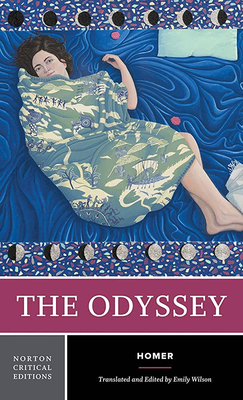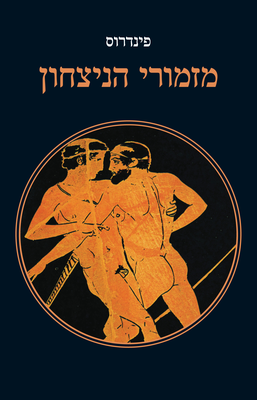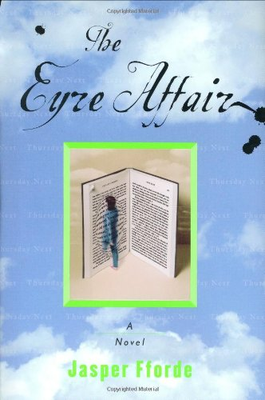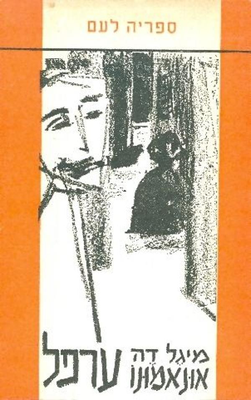
| Read Log, January-March 2023 | ||||
| By Tal Cohen | Monday, 17 April 2023 | |||
I should probably start by saying that all three are brilliant and highly enjoyable. They are also very, very different. Reading all three in lockstep helped me find many a small mistake in each of the three versions, but more importantly, it highlighted the different choices made by each translator. For example, Shabtai is adamant about keeping names in the original; he would always prefer “Zephyros”, for example, over “The West Wind”. One possible reason is that the lack of capitalization in Hebrew would otherwise make it hard to realize this is not just a concept being mentioned, but an entity being named, a god or daemon; a distinction made possible in English through the difference between “dawn” and “Dawn”, for example — a name that Shabtai preserves as “Eos”. This makes the text somewhat more cumbersome, as the first reference, at least, must also explain who Eos (or Zephyros, etc.) is. Another point of difference revolves around repetitions in the original. The Odyssey includes a range of repeated epithets consistently applied to various characters. Wilson explicitly avoids these repetitions in the translation: “In a highly literate society such as our own,” she explains in the introduction, “repetitions are likely to feel like moments to skip. They can be a mark of writerly laziness or unwillingness to acknowledge one’s own interpretative position, and can send a reader to sleep.” However, her translation sometimes goes so far as to replace “Sagacious Telemachos” with “The Boy”. Wilson avoids repetition in more than just the epithets; for example, two different lines from Book One, “Meanwhile, bright-eyed Athena had a plan” and “Then, eyes ablaze with plans”, are actually completely identical in the original, and presenting them as variations removes, in my mind, some of the charm of Homer. And at times, the effort to avoid repetitive epithets clearly misses the cases where they are most appropriate; e.g., “But with caution / Telemachus replied” instead of just using Telemachus’s standard epithet, “sagacious”. Similarly, when one person asks another to deliver a message, the message is normally transferred verbatim; but Wilson’s aversion of repetitiveness causes the messenger to ad-lib (e.g., the swineherd delivering Telemachus’s message to Odysseus in Book Seventeen; the adjacency of the two instances highlights the discrepancy). Green, in comparison, is beautifully strict in rendering repetitive fragments, be it epithets, phrases, or whole lines, as they appear in the original, which in my view is the more appropriate choice. Shabtai is almost, but not quite, as strict as Green. Generally speaking, Green’s translation probably sports the highest fidelity of the three, and is the closest to the original in terms of content; hardly any detail is lost. However, this comes at the price of long and winding sentences that can end up being overly complex. Wilson’s text, in comparison, is rather lossy or inaccurate. As a trivial example, in Book Three, when Telemachus begs something of Nestor, he does so by touching Nestor’s knees, the common form of supplication in ancient Greece; both Green and Shabtai make this explicit, but Wilson simplifies this to a mere “I beg you”, removing the cultural context of supplication. There is a multitude of such examples throughout the text, but while it might sound like this distracts from the value of Wilson’s rendition, it actually makes her text far more flowing and easier to read. More than the other two versions, Wilson’s Odyssey can be a light and highly enjoyable read. Beyond simple stylistic choices, there is one point in Wilson that I particularly appreciated: constantly underlining, through accurate use of vocabulary, that many of the men and women present in the story were in actual fact slaves, rather than “servants” or “maids”. The point is particularly poignant in Book Twenty Two, where the unloyal women hanged by Telemachus are described as having been “taught to [endure] a lifetime of servitude”, in Green’s text, but Wilson clarifies that they were “taught to tolerate their life as slaves” and further states, in a footnote, that it is very likely this was sexual enslavement. (The footnotes in all three books are enriching and rewarding.) I have previously read Green’s and Shabtai’s Iliad; I now eagerly await Wilson’s, due later this year.  And it was all very timely, because I was just finishing this volume at the same time...  Alongside this volume I’ve read Shaw’s Pygmalion, translated by Dwora Gilula (they do not get married at the end, and that’s the entire point; which makes My Fair Lady a complete sacrilege) and Seven Comedies by Ephraim Kishon (brilliant; I particularly loved the first play, Oh, Oh, Juliet). And... this completes my seven-years-long quest to obtain a B.A. in literature. Done.   Obviously, the book contains multiple parallels to Jane Eyre: the heroine growing up without her father, the loved one who cannot be married, almost compromising on somebody who plans to travel with her far away, the aborted wedding scene, and so on. Interestingly, I find the alternative (“original”) ending of Jane Eyre suggested by the novel, the one so disliked by readers in the fictional world, to be much preferable; perhaps exactly because it lacks the mystical component that was required to make that happy-end work. From the moment this alternate ending was presented, it was clear that Thursday herself would be the explanation to the supernatural element in the real version. 
| ||||